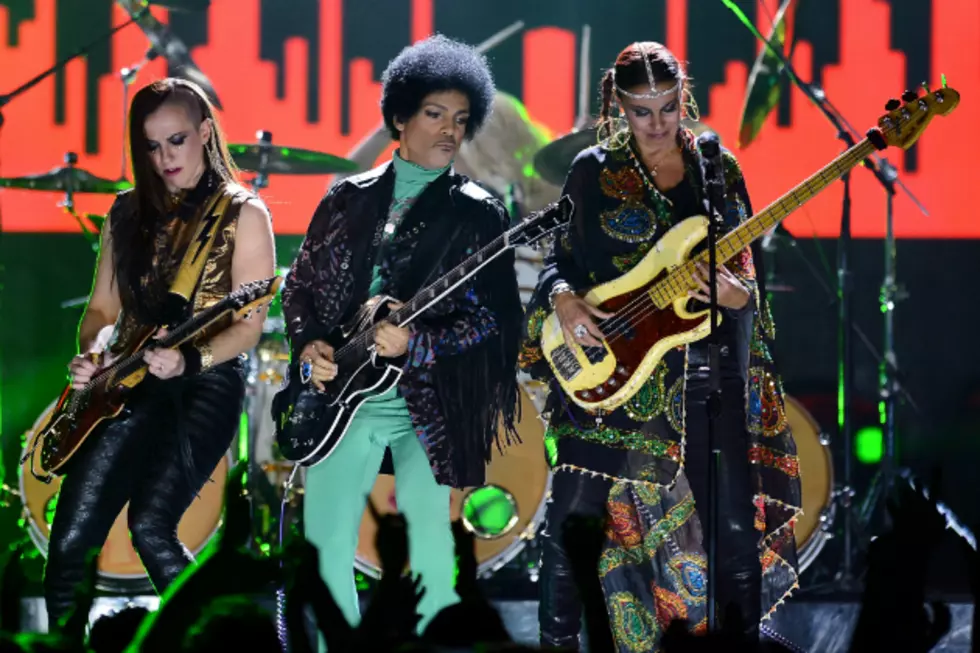
Music Changes the World (When We Let It)
It's bad times out there right now. I don't want to get into the specifics of any one news story; you can take your pick. The last 15 years have been the most tumultuous years of most of our lives.
Much of that upheaval seems to revolve around some variation on "us vs. them," as if we're constantly being pressured into choosing sides in a never-ending series of battles with them, whoever they are: countries, races, parties, opinions. The only thing we can seem to agree on is that we disagree.
The most powerful weapon we have at our disposal in these ongoing skirmishes isn't guns but Sex Pistols; not war but the the War on Drugs. Sometimes the most potent rage is Rage Against the Machine. Music's awesome superpowers are much easier to discern than, say, Aquaman's contribution to world peace. Simply put, music brings people together, knocks down boundaries and transmits ideas.
There's a reason that you know the words to the song "the Star-Spangled Banner" but not to the poem, "Defence of Fort M'Henry," for example. By setting Francis Scott Keys' poem to music, not only did we get a common structure by which to remember his words, but we also created one more thing that Marvin Gaye could do better than the rest of us.
The influential power of music has long been known to advertisers. Sing "bada bum bum bum" in a crowd and one person is bound to reply, "I'm lovin' it." Without straining, I can remember a half dozen jingles from my childhood. I can't manage to get the whereabouts of my phone to stick in my memory, but I'm forever stuck on Band-Aids, 'cause Band-Aids stuck on me.
Nursery rhymes, hymns and folk music all have in common an ability to transmit information via a few chords and a melody. Popular music does, too, with varying degrees of success. In the early days, rap was often likened to an alternative newspaper, conveying messages to a community ignored by other media. Cautionary tales like "White Lines" and "Crack Killed Applejack" sold big because they were killer songs, but some kids got their messages.
Rock 'n' roll functions as an agent of change, too. The '60s were the heyday of the activist pop song, but some artists carried that vibe into the '70s. Neil Young wrote "Ohio" in the wake of the 1970 Kent State massacre, and Crosby, Stills, Nash & Young released the song as a single within a month of the incident. That song has done more to keep the memories of those four slain students alive than have all of the essays written on the topic combined.
Beginning with George Harrison's Concert for Bangladesh in 1971, just one year after Kent State, music found a new way to change the world. Rather than trade on their fame for Rolexes, some artists chose to use their celebrity to raise awareness (and money) for various causes. Benefit concerts reached their zenith in 1985 when 1.9 billion people tuned in for Live Aid, but the greatest benefit show moment might come from 1979's Concerts for the People of Kampuchea. The Clash's run through of "Armagideon Time" is as good as it gets.
"Armagideon Time" wasn't really a Clash song. Sure, it was the B-side to "London Calling," but it was a cover of a Willi Williams' reggae hit. It was British punk and reggae intertwined courtesy of London's Jamaican population, the now legendary rude boys. Not only did that marriage result in some amazing music, but it brought a spotlight to a whole new set of issues that most of us didn't really know much about. I'm not embarrassed to admit that Nelson Mandela was a character in a song before I knew anything about the man. That's the power of music.
"Cultural appropriation" is a tricky thing. Were the punk and ska bands ripping off their Jamaican counterparts or were they breaking down barriers? It's a debate that predates the rock era. The jazz world was integrated long before the rest of American society because musicians were hip to a simple truth long before the rest of us: the color of your skin doesn't matter if you can do the job.
That attitude carried through to rock 'n' roll, where Chuck Berry, Fats Domino, and Little Richard were as popular as Elvis and Jerry Lee Lewis. Racists of that era knew the real power of music to change the world was right there and that's what frightened them. Rock music was dangerous solely by existing because it threatened to tear down the walls that segregated us.
Sometimes change sneaks in when we aren't looking. Of all of the uses of music to change the world, it is the last one that is the most potent. We can't hate when we love. Music introduces us to other cultures and viewpoints in a manner to which we're almost always receptive. It entertains us first and informs us second. There are no racists at a Prince show – at least, not by the end. If you can sit through a Prince gig and not fall in love, you're dead inside.
More From Diffuser.fm









